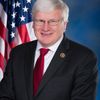Wisconsin's 6th Congressional District election, 2026
|
← 2024
|
| Wisconsin's 6th Congressional District |
|---|
| Democratic primary Republican primary General election |
| Election details |
| Filing deadline: June 1, 2026 |
| Primary: August 11, 2026 General: November 3, 2026 |
| How to vote |
| Poll times:
7 a.m. to 8 p.m. |
| Race ratings |
DDHQ and The Hill: Pending Inside Elections: Solid Republican Sabato's Crystal Ball: Safe Republican |
| Ballotpedia analysis |
| U.S. Senate battlegrounds U.S. House battlegrounds Federal and state primary competitiveness Ballotpedia's Election Analysis Hub, 2026 |
| See also |
1st • 2nd • 3rd • 4th • 5th • 6th • 7th • 8th Wisconsin elections, 2026 U.S. Congress elections, 2026 U.S. Senate elections, 2026 U.S. House elections, 2026 |
All U.S. House districts, including the 6th Congressional District of Wisconsin, are holding elections in 2026. The general election is November 3, 2026. The primary is August 11, 2026. The filing deadline is June 1, 2026. For more information about the primaries in this election, click on the links below:
- Wisconsin's 6th Congressional District election, 2026 (August 11 Democratic primary)
- Wisconsin's 6th Congressional District election, 2026 (August 11 Republican primary)
Candidates and election results
Note: The following list includes official candidates only. Ballotpedia defines official candidates as people who:
- Register with a federal or state campaign finance agency before the candidate filing deadline
- Appear on candidate lists released by government election agencies
General election
The primary will occur on August 11, 2026. The general election will occur on November 3, 2026. Additional general election candidates will be added here following the primary.
General election for U.S. House Wisconsin District 6
Michael Thurow is running in the general election for U.S. House Wisconsin District 6 on November 3, 2026.
Candidate | ||
 | Michael Thurow (Independent)  | |
 = candidate completed the Ballotpedia Candidate Connection survey. = candidate completed the Ballotpedia Candidate Connection survey. | ||||
| If you are a candidate and would like to tell readers and voters more about why they should vote for you, complete the Ballotpedia Candidate Connection Survey. | ||||
Do you want a spreadsheet of this type of data? Contact our sales team. | ||||
Democratic primary election
Democratic primary for U.S. House Wisconsin District 6
The following candidates are running in the Democratic primary for U.S. House Wisconsin District 6 on August 11, 2026.
Candidate | ||
 | Amanda Bell  | |
 | Kelly Brown  | |
 | Michael Heidenreich  | |
 | John Macho  | |
 | Joey Marschall  | |
 | Kortney Oldham | |
 | Bradley Smith  | |
 | Aaron Wojciechowski  | |
 = candidate completed the Ballotpedia Candidate Connection survey. = candidate completed the Ballotpedia Candidate Connection survey. | ||||
| If you are a candidate and would like to tell readers and voters more about why they should vote for you, complete the Ballotpedia Candidate Connection Survey. | ||||
Do you want a spreadsheet of this type of data? Contact our sales team. | ||||
Republican primary election
Republican primary for U.S. House Wisconsin District 6
Incumbent Glenn Grothman and Jonathan Peetz are running in the Republican primary for U.S. House Wisconsin District 6 on August 11, 2026.
Candidate | ||
 | Glenn Grothman | |
| Jonathan Peetz | ||
 = candidate completed the Ballotpedia Candidate Connection survey. = candidate completed the Ballotpedia Candidate Connection survey. | ||||
| If you are a candidate and would like to tell readers and voters more about why they should vote for you, complete the Ballotpedia Candidate Connection Survey. | ||||
Do you want a spreadsheet of this type of data? Contact our sales team. | ||||
Candidate profiles
This section includes candidate profiles that may be created in one of two ways: either the candidate completed Ballotpedia's Candidate Connection survey, or Ballotpedia staff may compile a profile based on campaign websites, advertisements, and public statements after identifying the candidate as noteworthy. For more on how we select candidates to include, click here.
Voting information
- See also: Voting in Wisconsin
Ballotpedia's Candidate Connection survey responses
Ballotpedia asks all federal, state, and local candidates to complete a survey and share what motivates them on political and personal levels. The section below shows responses from candidates in this race who completed Ballotpedia's Candidate Connection survey. Candidates are asked three required questions for this survey, but they may answer additional optional questions as well.

Survey responses from candidates in this race
Click on a candidate's name to visit their Ballotpedia page.
Note: Ballotpedia reserves the right to edit Candidate Connection survey responses. Any edits made by Ballotpedia will be clearly marked with [brackets] for the public. If the candidate disagrees with an edit, he or she may request the full removal of the survey response from Ballotpedia.org. Ballotpedia does not edit or correct typographical errors unless the candidate's campaign requests it.
| Collapse all

Michael Thurow (Independent)
As a firefighter and HAZMAT specialist public safety is something I take very seriously. Politicians often speak about public safety and take pictures with our first responders, but when it comes time to make sure FEMA funding is disbursed on time they are no where to be found. I am running to make sure there is local input in our public safety work. Additionally, Monopolies have taken over the production of emergency service equipment price-gouging the tax payer and slowing production. This means we waste millions in tax payer dollars on equipment and then often have to wait years to get these life saving machines.
My campaign is rooted in anti-corruption. For too long politicians from both parties have been enriching themselves through insider trading, crypto currency schemes, and major lobbying deals once they leave office. I would ban any trading of stocks or crypto currency by all elected officials, push for term limits to be enacted, and fight to ban corporate pac money from our elections.

Michael Thurow (Independent)

Michael Thurow (Independent)
Campaign finance
| Name | Party | Receipts* | Disbursements** | Cash on hand | Date |
|---|---|---|---|---|---|
| Glenn Grothman | Republican Party | $503,907 | $381,515 | $644,882 | As of December 31, 2025 |
| Amanda Bell | Democratic Party | $3,203 | $2,240 | $963 | As of December 31, 2025 |
| Kelly Brown | Democratic Party | $0 | $0 | $0 | Data not available*** |
| Michael Heidenreich | Democratic Party | $2,651 | $1,522 | $1,129 | As of December 31, 2025 |
| John Macho | Democratic Party | $0 | $0 | $0 | Data not available*** |
| Joey Marschall | Democratic Party | $201 | $10 | $191 | As of June 30, 2025 |
| Kortney Oldham | Democratic Party | $0 | $0 | $0 | Data not available*** |
| Bradley Smith | Democratic Party | $32,997 | $9,630 | $23,367 | As of December 31, 2025 |
| Aaron Wojciechowski | Democratic Party | $36,626 | $31,761 | $4,866 | As of December 31, 2025 |
| Jonathan Peetz | Republican Party | $0 | $0 | $0 | Data not available*** |
| Michael Thurow | Independent | $0 | $0 | $0 | As of December 31, 2025 |
|
Source: Federal Elections Commission, "Campaign finance data," 2026. This product uses the openFEC API but is not endorsed or certified by the Federal Election Commission (FEC).
* According to the FEC, "Receipts are anything of value (money, goods, services or property) received by a political committee." |
|||||
General election race ratings
- See also: Race rating definitions and methods
Ballotpedia provides race ratings from four outlets: The Cook Political Report, Inside Elections, Sabato's Crystal Ball, and DDHQ/The Hill. Each race rating indicates if one party is perceived to have an advantage in the race and, if so, the degree of advantage:
- Safe and Solid ratings indicate that one party has a clear edge and the race is not competitive.
- Likely ratings indicate that one party has a clear edge, but an upset is possible.
- Lean ratings indicate that one party has a small edge, but the race is competitive.[1]
- Toss-up ratings indicate that neither party has an advantage.
Race ratings are informed by a number of factors, including polling, candidate quality, and election result history in the race's district or state.[2][3][4]
| Race ratings: Wisconsin's 6th Congressional District election, 2026 | |||||||||
|---|---|---|---|---|---|---|---|---|---|
| Race tracker | Race ratings | ||||||||
| 3/3/2026 | 2/24/2026 | 2/17/2026 | 2/10/2026 | ||||||
| The Cook Political Report with Amy Walter | Solid Republican | Solid Republican | Solid Republican | Solid Republican | |||||
| Decision Desk HQ and The Hill | Pending | Pending | Pending | Pending | |||||
| Inside Elections with Nathan L. Gonzales | Solid Republican | Solid Republican | Solid Republican | Solid Republican | |||||
| Larry J. Sabato's Crystal Ball | Safe Republican | Safe Republican | Safe Republican | Safe Republican | |||||
| Note: Ballotpedia reviews external race ratings every week throughout the election season and posts weekly updates even if the media outlets have not revised their ratings during that week. | |||||||||
Ballot access
The table below details filing requirements for U.S. House candidates in Wisconsin in the 2026 election cycle. For additional information on candidate ballot access requirements in Wisconsin, click here.
| Filing requirements for U.S. House candidates, 2026 | ||||||
|---|---|---|---|---|---|---|
| State | Office | Party | Signatures required | Filing fee | Filing deadline | Source |
| Wisconsin | U.S. House | All candidates | 1,000 | N/A | 6/1/2026 | Source |
District history
The section below details election results for this office in elections dating back to 2020.
General election
General election for U.S. House Wisconsin District 6
Incumbent Glenn Grothman (R) defeated John Zarbano (D) in the general election for U.S. House Wisconsin District 6 on November 5, 2024.
Candidate | % | Votes | ||
| ✔ |  | Glenn Grothman (R) | 61.2 | 251,889 |
 | John Zarbano (D)  | 38.7 | 159,042 | |
| Other/Write-in votes | 0.1% | 418 | ||
| Total votes: 411,349 | ||||
 = candidate completed the Ballotpedia Candidate Connection survey. = candidate completed the Ballotpedia Candidate Connection survey. | ||||
| If you are a candidate and would like to tell readers and voters more about why they should vote for you, complete the Ballotpedia Candidate Connection Survey. | ||||
Do you want a spreadsheet of this type of data? Contact our sales team. | ||||
Withdrawn or disqualified candidates
- Jack Brudvig (R)
Democratic primary
Democratic primary for U.S. House Wisconsin District 6
John Zarbano (D) advanced from the Democratic primary for U.S. House Wisconsin District 6 on August 13, 2024.
Candidate | % | Votes | ||
| ✔ |  | John Zarbano  | 99.9 | 54,212 |
| Other/Write-in votes | 0.1% | 65 | ||
| Total votes: 54,277 | ||||
 = candidate completed the Ballotpedia Candidate Connection survey. = candidate completed the Ballotpedia Candidate Connection survey. | ||||
| If you are a candidate and would like to tell readers and voters more about why they should vote for you, complete the Ballotpedia Candidate Connection Survey. | ||||
Do you want a spreadsheet of this type of data? Contact our sales team. | ||||
Withdrawn or disqualified candidates
- Amy Washburn (D)
Republican primary
Republican primary for U.S. House Wisconsin District 6
Incumbent Glenn Grothman (R) advanced from the Republican primary for U.S. House Wisconsin District 6 on August 13, 2024.
Candidate | % | Votes | ||
| ✔ |  | Glenn Grothman | 99.2 | 75,113 |
| Other/Write-in votes | 0.8% | 580 | ||
| Total votes: 75,693 | ||||
 = candidate completed the Ballotpedia Candidate Connection survey. = candidate completed the Ballotpedia Candidate Connection survey. | ||||
| If you are a candidate and would like to tell readers and voters more about why they should vote for you, complete the Ballotpedia Candidate Connection Survey. | ||||
Do you want a spreadsheet of this type of data? Contact our sales team. | ||||
General election
General election for U.S. House Wisconsin District 6
Incumbent Glenn Grothman (R) defeated Tom Powell (Independent) in the general election for U.S. House Wisconsin District 6 on November 8, 2022.
Candidate | % | Votes | ||
| ✔ |  | Glenn Grothman (R) | 94.9 | 239,231 |
| Tom Powell (Independent) (Write-in) | 0.1 | 340 | ||
| Other/Write-in votes | 4.9% | 12,428 | ||
| Total votes: 251,999 | ||||
 = candidate completed the Ballotpedia Candidate Connection survey. = candidate completed the Ballotpedia Candidate Connection survey. | ||||
| If you are a candidate and would like to tell readers and voters more about why they should vote for you, complete the Ballotpedia Candidate Connection Survey. | ||||
Do you want a spreadsheet of this type of data? Contact our sales team. | ||||
Democratic primary
Democratic primary for U.S. House Wisconsin District 6
No candidates for U.S. House Wisconsin District 6 appeared on the ballot for the Democratic primary scheduled for August 9, 2022.
Candidate | % | Votes | ||
| Other/Write-in votes | 100.0% | 1,343 | ||
| Total votes: 1,343 | ||||
 = candidate completed the Ballotpedia Candidate Connection survey. = candidate completed the Ballotpedia Candidate Connection survey. | ||||
| If you are a candidate and would like to tell readers and voters more about why they should vote for you, complete the Ballotpedia Candidate Connection Survey. | ||||
Do you want a spreadsheet of this type of data? Contact our sales team. | ||||
Withdrawn or disqualified candidates
- Matthew Manes (D)
- Amy Washburn (D)
Republican primary
Republican primary for U.S. House Wisconsin District 6
Incumbent Glenn Grothman (R) defeated Douglas Mullenix (R) in the Republican primary for U.S. House Wisconsin District 6 on August 9, 2022.
Candidate | % | Votes | ||
| ✔ |  | Glenn Grothman | 82.5 | 84,056 |
 | Douglas Mullenix  | 17.4 | 17,773 | |
| Other/Write-in votes | 0.1% | 82 | ||
| Total votes: 101,911 | ||||
 = candidate completed the Ballotpedia Candidate Connection survey. = candidate completed the Ballotpedia Candidate Connection survey. | ||||
| If you are a candidate and would like to tell readers and voters more about why they should vote for you, complete the Ballotpedia Candidate Connection Survey. | ||||
Do you want a spreadsheet of this type of data? Contact our sales team. | ||||
Withdrawn or disqualified candidates
- Mike Mangan (R)
General election
General election for U.S. House Wisconsin District 6
Incumbent Glenn Grothman (R) defeated Jessica King (D) in the general election for U.S. House Wisconsin District 6 on November 3, 2020.
Candidate | % | Votes | ||
| ✔ |  | Glenn Grothman (R) | 59.2 | 238,874 |
 | Jessica King (D)  | 40.7 | 164,239 | |
| Other/Write-in votes | 0.1% | 220 | ||
| Total votes: 403,333 | ||||
 = candidate completed the Ballotpedia Candidate Connection survey. = candidate completed the Ballotpedia Candidate Connection survey. | ||||
| If you are a candidate and would like to tell readers and voters more about why they should vote for you, complete the Ballotpedia Candidate Connection Survey. | ||||
Do you want a spreadsheet of this type of data? Contact our sales team. | ||||
Democratic primary
Democratic primary for U.S. House Wisconsin District 6
Jessica King (D) defeated Michael Beardsley (D) and Matthew Boor (D) in the Democratic primary for U.S. House Wisconsin District 6 on August 11, 2020.
Candidate | % | Votes | ||
| ✔ |  | Jessica King  | 75.9 | 38,043 |
 | Michael Beardsley  | 15.8 | 7,896 | |
 | Matthew Boor  | 8.3 | 4,165 | |
| Other/Write-in votes | 0.0% | 24 | ||
| Total votes: 50,128 (100% precincts reporting) | ||||
 = candidate completed the Ballotpedia Candidate Connection survey. = candidate completed the Ballotpedia Candidate Connection survey. | ||||
| If you are a candidate and would like to tell readers and voters more about why they should vote for you, complete the Ballotpedia Candidate Connection Survey. | ||||
Do you want a spreadsheet of this type of data? Contact our sales team. | ||||
Withdrawn or disqualified candidates
- Amy Washburn (D)
Republican primary
Republican primary for U.S. House Wisconsin District 6
Incumbent Glenn Grothman (R) advanced from the Republican primary for U.S. House Wisconsin District 6 on August 11, 2020.
Candidate | % | Votes | ||
| ✔ |  | Glenn Grothman | 99.7 | 52,247 |
| Other/Write-in votes | 0.3% | 153 | ||
| Total votes: 52,400 | ||||
 = candidate completed the Ballotpedia Candidate Connection survey. = candidate completed the Ballotpedia Candidate Connection survey. | ||||
| If you are a candidate and would like to tell readers and voters more about why they should vote for you, complete the Ballotpedia Candidate Connection Survey. | ||||
Do you want a spreadsheet of this type of data? Contact our sales team. | ||||
Withdrawn or disqualified candidates
District analysis
Click the tabs below to view information about voter composition, past elections, and demographics in both the district and the state.
- District map - A map of the district in place for the election.
- Competitiveness - Information about the competitiveness of 2026 U.S. House elections in the state.
- Presidential elections - Information about presidential elections in the district and the state.
- State party control - The partisan makeup of the state's congressional delegation and state government.
Below is the district map in place for this election. Click the map below to enlarge it.

Partisan Voter Index
Heading into the 2026 elections, based on results from the 2024 and 2020 presidential elections, the Cook Partisan Voter Index for this district is R+8. This meant that in those two presidential elections, this district's results were 8 percentage points more Republican than the national average. This made Wisconsin's 6th the 151st most Republican district nationally.[5]
2020 presidential election results
The table below shows what the vote in the 2024 presidential election was in this district. The presidential election data was compiled by The Downballot.
| Kamala Harris | Donald Trump |
|---|---|
| 41.0% | 58.0% |
Presidential voting history
- See also: Presidential election in Wisconsin, 2024
Wisconsin presidential election results (1900-2024)
- 15 Democratic wins
- 16 Republican wins
- 1 other win
| Year | 1900 | 1904 | 1908 | 1912 | 1916 | 1920 | 1924 | 1928 | 1932 | 1936 | 1940 | 1944 | 1948 | 1952 | 1956 | 1960 | 1964 | 1968 | 1972 | 1976 | 1980 | 1984 | 1988 | 1992 | 1996 | 2000 | 2004 | 2008 | 2012 | 2016 | 2020 | 2024 |
|---|---|---|---|---|---|---|---|---|---|---|---|---|---|---|---|---|---|---|---|---|---|---|---|---|---|---|---|---|---|---|---|---|
| Winning Party | R | R | R | D | R | R | P[6] | R | D | D | D | R | D | R | R | R | D | R | R | D | R | R | D | D | D | D | D | D | D | R | D | R |
Congressional delegation
The table below displays the partisan composition of Wisconsin's congressional delegation as of October 2025.
| Congressional Partisan Breakdown from Wisconsin | |||
|---|---|---|---|
| Party | U.S. Senate | U.S. House | Total |
| Democratic | 1 | 2 | 3 |
| Republican | 1 | 6 | 7 |
| Independent | 0 | 0 | 0 |
| Vacancies | 0 | 0 | 0 |
| Total | 2 | 8 | 10 |
State executive
The table below displays the officeholders in Wisconsin's top four state executive offices as of October 2025.
| Office | Officeholder |
|---|---|
| Governor | |
| Lieutenant Governor | |
| Secretary of State | |
| Attorney General |
State legislature
Wisconsin State Senate
| Party | As of October 2025 | |
|---|---|---|
| Democratic Party | 15 | |
| Republican Party | 18 | |
| Other | 0 | |
| Vacancies | 0 | |
| Total | 33 | |
Wisconsin State Assembly
| Party | As of October 2025 | |
|---|---|---|
| Democratic Party | 45 | |
| Republican Party | 54 | |
| Other | 0 | |
| Vacancies | 0 | |
| Total | 99 | |
Trifecta control
Wisconsin Party Control: 1992-2025
Two years of Democratic trifectas • Ten years of Republican trifectas
Scroll left and right on the table below to view more years.
| Year | 92 | 93 | 94 | 95 | 96 | 97 | 98 | 99 | 00 | 01 | 02 | 03 | 04 | 05 | 06 | 07 | 08 | 09 | 10 | 11 | 12 | 13 | 14 | 15 | 16 | 17 | 18 | 19 | 20 | 21 | 22 | 23 | 24 | 25 |
|---|---|---|---|---|---|---|---|---|---|---|---|---|---|---|---|---|---|---|---|---|---|---|---|---|---|---|---|---|---|---|---|---|---|---|
| Governor | R | R | R | R | R | R | R | R | R | R | R | D | D | D | D | D | D | D | D | R | R | R | R | R | R | R | R | D | D | D | D | D | D | D |
| Senate | D | R | R | R | D | D | R | D | D | D | D | R | R | R | R | D | D | D | D | R | R | R | R | R | R | R | R | R | R | R | R | R | R | R |
| House | D | D | D | R | R | R | R | R | R | R | R | R | R | R | R | R | R | D | D | R | R | R | R | R | R | R | R | R | R | R | R | R | R | R |
See also
External links
Footnotes
- ↑ Inside Elections also uses Tilt ratings to indicate an even smaller advantage and greater competitiveness.
- ↑ Amee LaTour, "Email correspondence with Nathan Gonzalez," April 19, 2018
- ↑ Amee LaTour, "Email correspondence with Kyle Kondik," April 19, 2018
- ↑ Amee LaTour, "Email correspondence with Charlie Cook," April 22, 2018
- ↑ Cook Political Report, "2025 Cook PVI℠: District Map and List (119th Congress)," accessed July 1, 2025
- ↑ Progressive Party









